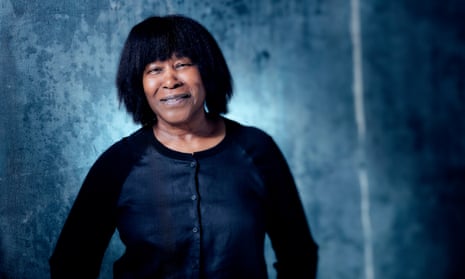It seems a strange thing to say about someone who was awarded a CBE last October, is still in possession of a major label contract at 70 and clearly has no problem selling out venues whenever she chooses to tour, but Joan Armatrading still feels like a weirdly under-sung figure in pop history. It’s not just that she was a genuinely groundbreaking artist, although she undoubtedly was: the world of British mainstream rock wasn’t exactly awash with Black gay female singer-songwriters in the 1970s, particularly ones who achieved success on the scale Armatrading did. It’s that the quality of what she did doesn’t feel fully reflected in her contemporary status.

She has a brace of singles that will evidently remain on the playlists of solid gold radio stations until solid gold radio stations cease to exist – Love and Affection, Me Myself and I, Drop the Pilot – and a handful of yellowing music press clippings that reveal critics heaping praise on her eponymous 1976 breakthrough album. But 45 years on, the 100 best albums ever lists remain closed to her oeuvre, the heritage rock mags don’t run retrospective features and the hipster rehabilitation of 70s soft rock never seems to reach the lush textures of Tall in the Saddle or the funky undertow of Show Some Emotion.
Perhaps it’s linked to the fact that Armatrading’s music was genuinely hard to pin down. Even before she started releasing jazz and blues albums and Shakespeare-inspired song cycles, she declined to fit easily into any category: she was clearly as comfortable setting her songs to Kraftwerk-ish synthesisers or the guitar squall of Bowie and King Crimson alumnus Adrian Belew as she was toting an acoustic guitar. Or perhaps it’s Armatrading’s unassuming nature, her disinclination to act as anyone’s standard-bearer. Her sexuality was something her songs hinted at – not least 1978’s Taking My Baby Uptown, which certainly sounds like it’s about homophobia – but few artists have been so unfailingly insistent that the public enjoy the music, then mind their own business about everything else. Until someone spotted a statutory public notice of her civil partnership to artist Maggie Butler, the “Personal life” section of Armatrading’s Wikipedia page didn’t contain any information beyond the fact that she lived in Surrey.
Under the circumstances, you could infer a lot from the fact that Consequences concludes with songs called Think About Me and To Anyone Who Will Listen, but no: the former is a euphoric love song whipped along by a double-time drum track; the latter is certainly despondent, but when an American journalist attempted to draw a parallel with “a songwriter’s cri de coeur”, he was swiftly disabused of the idea, and told it was based on an article Armatrading had read about depression.
In fact, it’s hard to think of an album surer of its place in the landscape than Consequences. For all the lyrical sensitivity, the most striking thing about it is its musical confidence, which finds its voice in a variety of ways. There’s the inventiveness of the Armatrading’s own arrangements and production: the rhythms shift around from ska-influenced on Better Life to the pattering hi-hats of dance music on Like; she unexpectedly deploys an explosion of very Queen-esque multitracked guitar amid the intriguingly abstract stew of dubby bass, jazz piano interjections and scattered backing vocals that constitutes the title track.
And there’s the refusal to do the thing that a lot of artists in Armatrading’s position – nearing the 50th anniversary of her debut album, with a loyal and longstanding fanbase – would do, namely comfortingly revisit her past. Instead, Consequences essays pop head on, without for a second sounding like a heritage artist trying to glom on to current trends. Natural Rhythm, Already There and Like sparkle because they’ve got the kind of melodies that people pay teams of Nordic songwriters fortunes to painstakingly devise: moreover, they fit her voice, always more strident and powerful than you might expect given the sensitive singer-songwriter tag.
It’s another album of exquisitely written songs to add to the pile of exquisitely written albums. But maybe Consequences arrives at the right moment, chiming with hints that Armatrading is finally getting her due, at least from her fellow artists: Laura Mvula recently hailed her importance – “this is my heritage” – while Arlo Parks clearly has Armatrading in her musical DNA and included her 1977 single Willow alongside Janelle Monáe, Angel Olsen and Sophie tracks in her playlist of music made by “visionary women”.
A critical elevation of her work would be welcome and just, but it’s worth pointing out that Armatrading herself seems perfectly content where she is. “Some people sit in their ivory tower with the Midas touch,” she sings on To Be Loved. “A kind word has more healing power / It’s precious.”
This week Alexis listened to
The Still Brothers ft Kim Foxen – When Will I See U?
Perfect soundtrack to a hot June afternoon – languorous, elegant, modern soul, equal parts Air and 70s Philly.

Comments (…)
Sign in or create your Guardian account to join the discussion